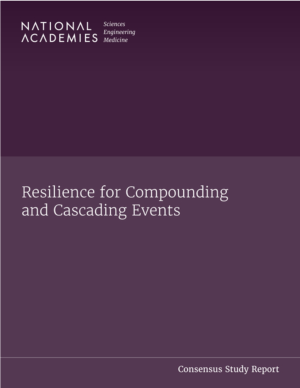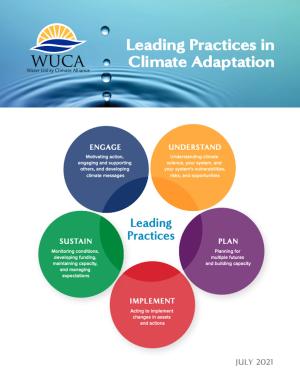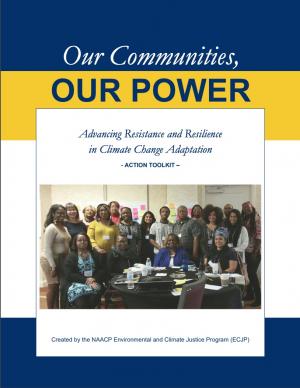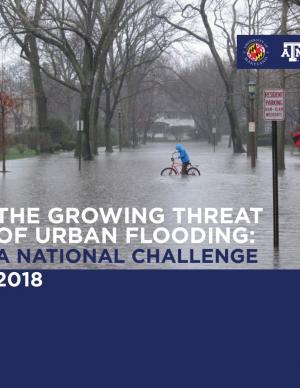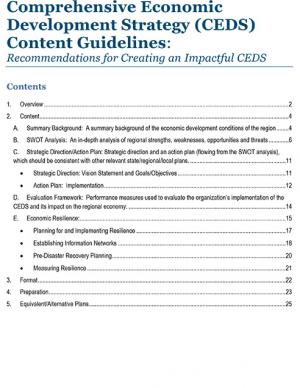Access a range of climate-related reports issued by government agencies and scientific organizations. Browse the reports listed below, or filter by scope, content, or focus in the boxes above. To expand your results, click the Clear Filters link.
There was a time not long ago when disasters would strike one at a time, and communities would have time to recover and rebuild. Today, however, there is a new normal where disasters most do not occur as isolated events and instead seem to pile on one another. They often unleash new devastation on a community before it has had a chance to recover from the prior disaster. This report, developed by National Academies' Resilient America Program's Committee on Hazard Mitigation and Resilience Applied Research Topics summarizes three applied research approaches in hazard mitigation and resilience field and provides four foundational themes to consider throughout research efforts.
The four foundational themes of future research identified include:
- compounding and cascading disasters are the new normal
- legacy conditions need to be assessed, evaluated, and addressed
- researchers need to practice codesign with communities, starting with pain points and impacts and working backward to solutions
- relentless resilience, or the ability to function throughout a series of disruptive events, is critical for a future marked by compounding and cascading events.
This is the second of two consensus study reports developed to assist FEMA in reducing the immense human and financial toll of disasters caused by natural hazards and other large-scale emergencies.
Click here to view a summary and key findings from this report >>
This is the FY22 edition of the U.S. Gllobal Change Research Program's annual report to Congress mandated by the the Global Change Research Act. The report provides an overview of the Program’s progress in delivering on its strategic goals as well as a summary of agency expenditures under USGCRP’s budget crosscut.
This collection of leading practices in climate adaptation covers a suite of climate adaptation actions and is intended to broadly promote collaborative learning. Each practice in the collection is explained and supported by concrete examples. These practices are drawn from WUCA work products and WUCA members' experiences, and, when possible, connected to relevant resources and related efforts. Most of these practices are appropriate for water utilities of any size, as well as other sectors interested in climate adaptation.
The current practices and where they are placed within the five essential climate adaptation action areas:
- Engage
- Understand
- Plan
- Implement
- Sustain
It is important to note that these action areas and leading practices are not prioritized. Instead, the most useful practices depend on the individual organization's needs and priorities.
This report aims to build the capacity of organizations to serve as catalysts in supporting members of their communities stepping into leadership roles, as well as engaging them meaningfully in defining the scope of local climate change risks and impacts and formulating and implementing equitable solutions alongside key partners. This guide was developed using qualitative data collected through a series of interviews with experts from around the country who are designing, managing, and implementing community-based leadership development programs. Although not all of these programs directly address climate change and environmental justice, this collection of diverse programming illustrates the broad ways in which communities address leadership development and grassroots engagement in local decision making. This tool provides a comprehensive picture of training and capacity-building theory and practice, and showcases programs that are diverse in content, audience, geography, outcome, and practice.
The Beloved Community is a vision for our future where all people share equally in the wealth and bounty of the earth, where we protect its abundance, diversity, and beauty for future generations. In this vision of liberation, racism, exploitation, and domination are replaced by democracy, cooperation, interdependence, and love. To get there, we pursue transformative, systems-change solutions. What do we mean by this? The root causes of the problems our communities face—like climate change, racism, and economic inequality—are all deeply connected. Since the problems are connected, so are the solutions. The purpose of this toolkit is to put us on the path toward achieving this vision. Through the context of building equity and resilience into climate adaptation planning, we introduce strategies to transform our communities and, by extension, society. Our ultimate goal is to create lasting and systemic change. At the same time, we recognize the urgency of the issues our communities face and the need to take action now. That is why we pursue change at every scale—from policy changes to community-based projects—to institute the transformative change we need to uphold our vision of the beloved community.
This report offers the first national assessment of the scope and consequences of urban flooding in the United States. Researchers analyzed available data concerning urban flooding, surveyed municipal flood and stormwater managers, and met with professionals whose disciplines intersect with urban flooding at the local, state, and national level. The research team's findings affirm that urban flooding is a national and significant source of economic loss, social disruption, and housing inequality. This report presents the full results of the study, addresses governance issues that affect urban flood risk reduction, examines critical challenges, and offers recommendations for actions.
This report considers the economic, environmental, and social factors that contribute to resilience, and how the concept of resilience translates to the private sector, municipal decision makers, and communities. It summarizes key themes posed by the Urban Land Institute's resilience work in the years since Hurricane Sandy, with a particular focus on ULI’s resilience-focused Advisory Services work. Ten Principles was developed through a ULI member workshop in summer 2017, which included 15 ULI member leaders who had served on resilience-focused Advisory Services Panels and other Urban Resilience program activities over the past four years. The members attending the workshop formulated the ten principles, which are illustrated in the report with on-the-ground examples from Advisory Services panels.
This guide offers a collection of 19 practical strategies for building owners to make their properties more resilient against the effects of extreme weather events. It draws on advice from over 50 experts in the field of resilience as well as the Federal Emergency Management Agency (FEMA) and the National Flood Insurance Program (NFIP). In addition, the manual offers guidance on determining a property’s vulnerability to various hazards, finding which strategies are relevant to a particular building, and getting started with a resilience plan.
It is becoming increasingly apparent that regional economic prosperity is linked to an area’s ability to prevent, withstand, and quickly recover from major disruptions (i.e., "shocks") to its economic base. Many definitions of economic resilience limit its focus on the ability to quickly recover from a disruption. However, in the context of economic development, economic resilience becomes inclusive of three primary attributes: the ability to recover quickly from a shock, the ability to withstand a shock, and the ability to avoid the shock altogether. Establishing economic resilience in a local or regional economy requires the ability to anticipate risk, evaluate how that risk can impact key economic assets, and build a responsive capacity. Building economic resilience is highlighted in this guide from the U.S. Economic Development Administration. The guide is primarily intended to assist in efforts to develop the content of a CEDS document, suggesting how to develop the document’s format and substance to make the strongest, most useful, and most effective CEDS possible.

